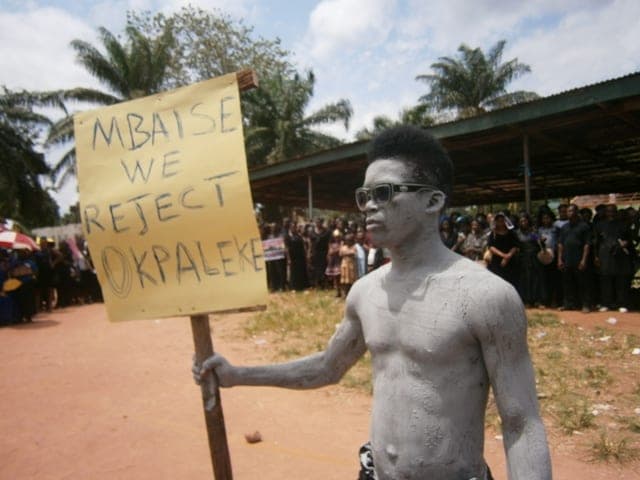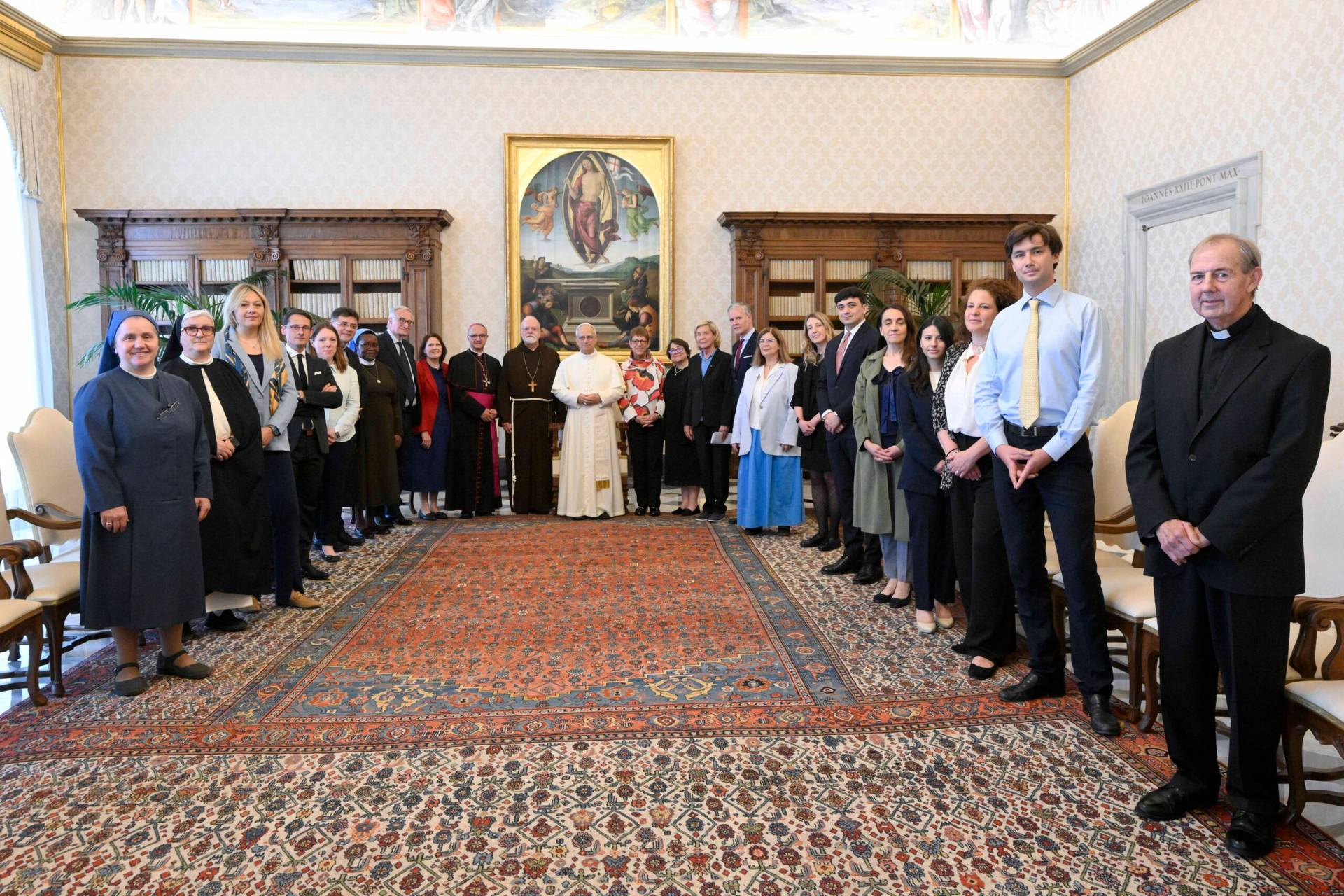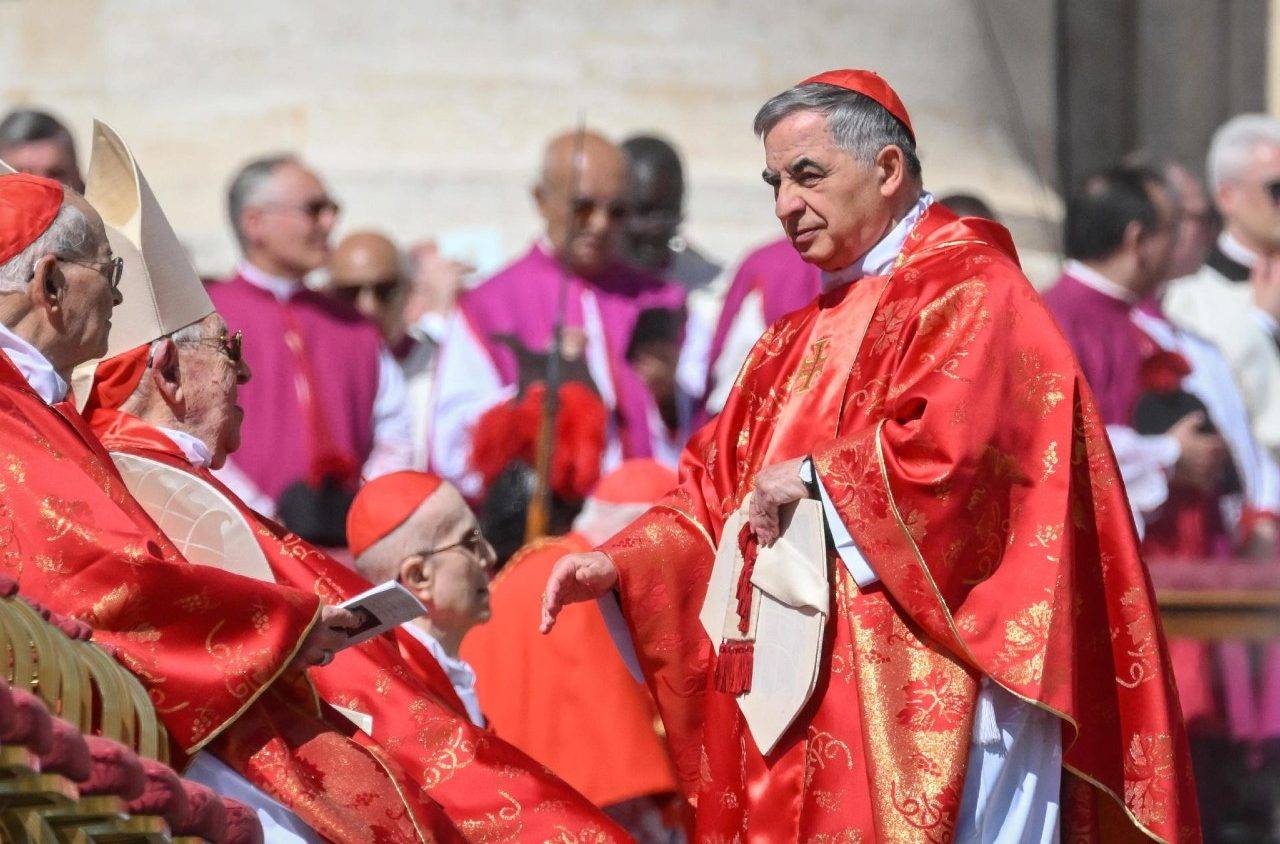ROME – On Monday, a Nigerian bishop for whom Pope Francis rolled out one of the most dramatic displays of papal authority in recent memory resigned, essentially ending a standoff that had lasted for more than five years, and without the pope’s man in charge.
The situation raises a fundamental question: Is this a situation in which the legendarily stubborn Francis actually blinked, meaning, accepted that even threatening to suspend the priests of an entire diocese was not enough to enforce his will?
Or, is this a gracious gesture by a bishop who was no longer interested in the rights and wrongs of the situation, but only in healing a hopelessly divided church? Or, perhaps, a pope committed to mercy putting that virtue in action?
A Monday statement from the Congregation for the Evangelization of Peoples, the Vatican’s missionary department that oversees the church in Nigeria, suggested that after Francis demanded in June 2017 that all the priests of the Diocese of Ahiara in Nigeria write to him personally to apologize for refusing to accept Bishop Peter Okpaleke, some 200 did so, but others indicated they had “psychological difficulty in collaborating with the bishop after years of conflict.”
Many priests and laity in Ahiara objected that Okpaleke, appointed by Pope Benedict XVI in 2012, was not a member of the majority cultural and linguistic group in the diocese, and saw the move as another example of ecclesiastical discrimination against that group.
The statement from the congregation indicated that Francis, despite having threatened suspension for priests refusing to accept the bishop, has now decided not to pursue sanctions.
At one level, it is difficult not to see that as, basically, capitulation. What’s the point of issuing threats for non-compliance if, when that non-compliance occurs on a large scale, you’re simply going to back down?
Arguably, Francis has made life more difficult not only for himself, if he chooses to issue similar threats again, but for any future pope, since the precedent seemingly has now been set that if you just complain loudly enough and hold out long enough, the pope will eventually thrown in the towel.
It’s undeniable that the forces rejoicing most enthusiastically today in Ahiara are precisely those who stared the pope in the eye over Okpaleke, and however much they may come across as gracious in victory, it’s clear they feel that they won and Francis lost. As the winning side put it on Monday, it’s not just that Okpaleke is gone, but he was “subdued and crushed by the inevitability of truth.”
If it’s not a victory cry, it’s hard to know what would be.
As a sobering note for those feeling elated today in Ahiara, however, a letter from the Vatican congregation to Nigerian Cardinal John Onaiyekan of Abuja, the national capital, who for a time was the apostolic administrator of Ahiara, indicates that Francis “does not intend to provide normal governance to Ahiara, and reserves the right to evaluate its spiritual and ecclesial progress before he makes another decision.”
In other words, there’s no guarantee at the end of it all that the rebels are going to like the final result any better than they did what turned out to be the interim one.
However, there are other ways of looking at the situation, less in terms of winners and losers, and more in terms of what the Gospel might counsel in a situation of conflict.
Francis is, after all, the “Pope of Mercy,” the pope who called an entire special jubilee year devoted to the theme of mercy, whose passion for the sacrament of reconciliation is palpable, and whose episcopal motto is miserando atque eligendo … “choosing through the eyes of mercy.”
From that point of view, the pope was simply choosing to exercise mercy, deciding that healing and reconciliation, ultimately, was more important than getting his own way.
Like any good confessor, however, Francis did not allow the opposition in Ahiara to walk away without penance. Before granting them forgiveness, he had forced the opposition clergy to their knees with his letter, demanding an apology and unambiguously pointing out the error of their ways.
Likewise, one could argue that Okpaleke himself took the high ground, realizing that the standard under Church law for the removal of a pastor isn’t personal guilt or innocence for some offense – in fact, no one has ever formally accused Okpaleke of doing anything wrong, save for the accident of being born into the wrong group – but rather when that person’s ministry has become “harmful or at least ineffective.”
In that sense, it’s possible to interpret the situation as Okpaleke, with the consent of Francis, simply realizing that the only way for the diocese to move forward was for him to step aside, which would mean, effectively, that he decided to take a hit for the team.
It’s quite possible, of course, the situation is actually all of these things: A pope exercising mercy, a bishop exercising humility and self-sacrifice, and still, one side clearly getting what it wanted while the other didn’t.
In other words, it could just be a complicated mess, with elements of grace and nobility bound up with humiliation, loss of face, and power politics. One’s tempted to say, “Welcome to the Catholic Church!”


















